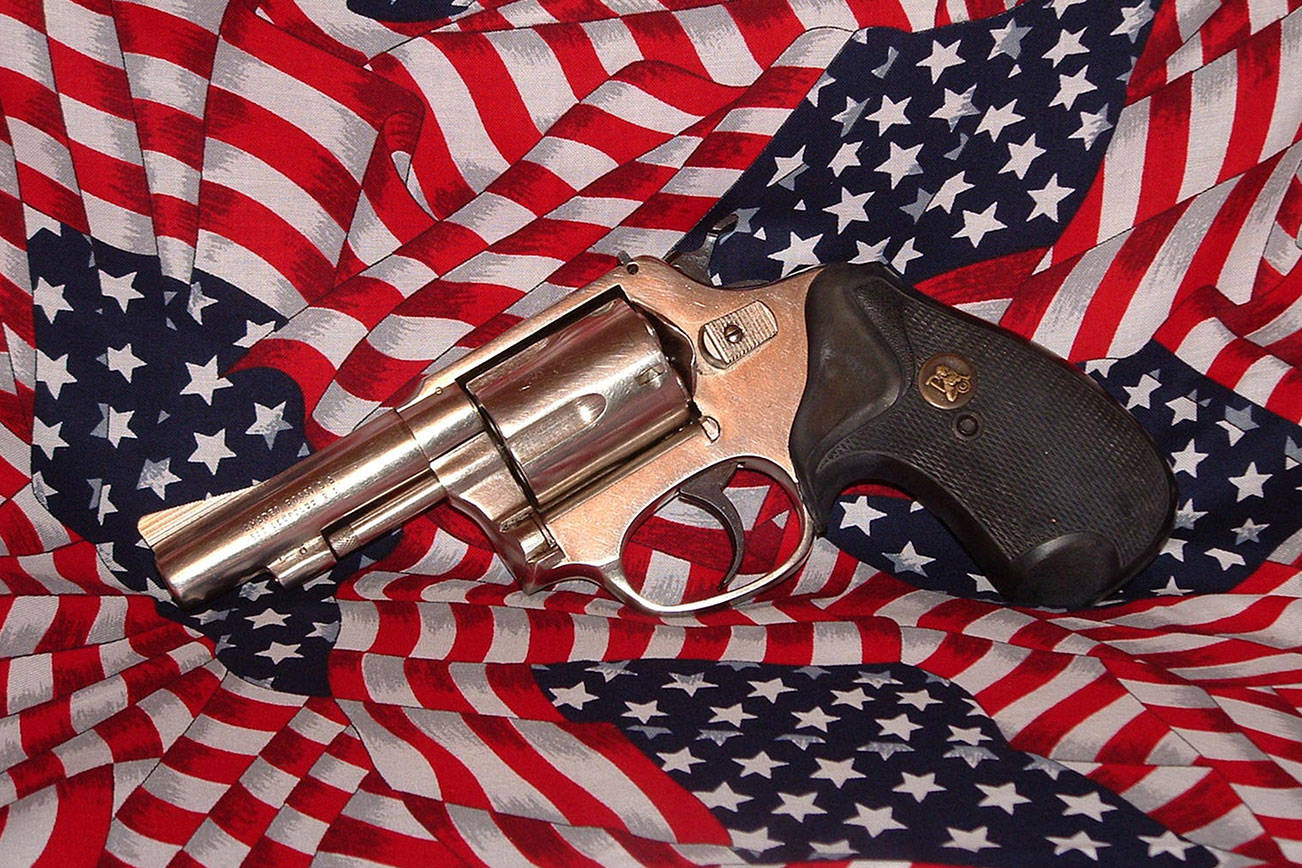Gun rights activists and their legislative allies may have messed up again in their political calculations in Washington.
They succeeded in blocking passage of a bill to raise the age for buying a semiautomatic assault rifle and to require background checks of those seeking to purchase such firearms.
But there’s now an initiative proposed to make those same changes in law – and a few other tweaks. Presuming it makes the November ballot, passage seems likely, given the current public attitudes toward these rifles.
That would leave gun rights advocates ceding more ground than they would have, had that failed bill become law.
Senate Bill 6620 sought to raise the minimum age for buying a semiautomatic assault rifle from 18 to 21, which is the age required to buy a handgun. It also would have required background checks on sales of semiautomatic assault rifles as is done with handgun purchases.
The legislation stopped there as it related to the rifles. Not the initiative. It also would:
• Require buyers to prove they have completed firearm safety training before a sale could occur;
• Mandate the state verify annually that those who have bought a handgun or semiautomatic assault rifle in Washington are still eligible to possess those firearms;
• Hold gun owners liable for the safe storage of their firearms;
• Add specific language to the purchase paperwork cautioning buyers that a firearm in the home increases the “risk of death to self and others, including an increased risk of suicide, death during domestic violence incidents, and unintentional deaths to children and others.”
Gun rights advocates successfully fended off many of those ideas in the Legislature this year, yet voters could soon make them all the law.
It’s as if leaders of their movement didn’t remember what happened four short years ago when, in a similar situation, they won a legislative battle and lost political ground.
In 2014, proponents of gun rights and their legislator friends stymied efforts by the Legislature to enact a universal background check law. So voters did it themselves.
Initiative 594 passed with 59.3 percent, expanding the state’s background check law to cover most gun sales conducted at gun shows and online. It won in 15 counties and by comfortable margins in the most populous – 75 percent in King County, 57.7 percent in Snohomish County, 54 percent in Pierce County, 52.6 percent Spokane County and 58.1 percent in Clark County.
You could see victory way before it arrived. It had 70 percent support in a statewide poll in July and the figure dipped only slightly in a follow-up survey in October.
As far as the campaign, it was pretty one-sided financially speaking.
The Alliance for Gun Responsibility hauled in $10.5 million to qualify and then pass the measure. More than half came from the state’s wealthy social changers – the Ballmers, the Gateses and the Nick Hanauers – and New York’s super-rich ex-mayor, Michael Bloomberg.
The NRA hardly put up a fight. Opponents expended a bit more than $600,000, of which $490,000 came from the NRA bank account in Virginia.
In 2018, it’s already feeling kind of like deja vu.
The alliance is pushing the initiative, its millionaire and billionaire backers are still around with checkbooks in hand, and polling done nationally and in pockets of Western and Eastern Washington are finding a majority backing stricter gun laws. Signature gathering could begin in May with 259,622 valid signatures due by July 6.
Initiative opponents shouldn’t count on the NRA quite yet.
NRA leaders will need to decide if it’s worth putting resources into a fight in a Left Coast state versus investing in efforts to keep Republicans in control of Congress to prevent ideas like this initiative from becoming federal law.
Jerry Cornfield: 360-352-8623; jcornfield@herald net.com. Twitter: @dospueblos.
Talk to us
Please share your story tips by emailing editor@kentreporter.com.
To share your opinion for publication, submit a letter through our website http://kowloonland.com.hk/?big=submit-letter/. Include your name, address and daytime phone number. (We’ll only publish your name and hometown.) Please keep letters to 300 words or less.

